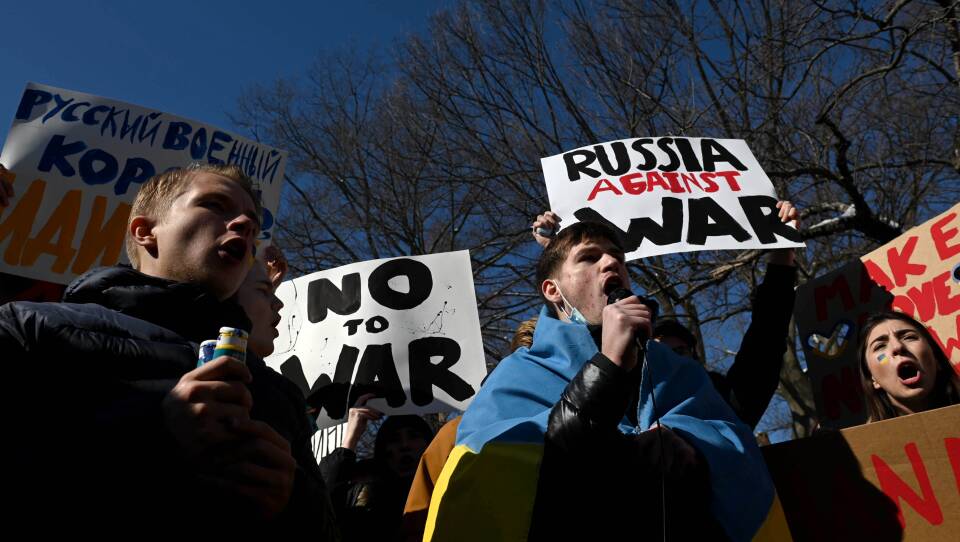While governments in Germany and Denmark are demanding their colleges de-activate any links to Russia, most American colleges are resisting calls to cut academic and financial ties. College leaders argue that might not be the best move at this time and some presidents are reluctant to use their voices to speak out because politics have become so toxic.
Instead, they're making sure everybody associated with the college community is safe, identifying formal relationships and financial connections that they may have with people in the Russian Federation and issuing statements celebrating the value of liberal arts education in fighting authoritarianism.
Nearly a week after Russia invaded Ukraine, the American Association of Colleges and Universities released a carefully-crafted statement condemning the Russian aggression against Ukraine.
"We're both saddened and outraged at the resulting loss of life," Lynn Pasquerella, the former president of Mount Holyoke College who now leads the national association, told GBH News.
Pasquerella said the association’s members want to use this crisis to underscore the value of education in the face of authoritarianism. "This moment calls out for a re-affirmation of liberal education and higher education's democratic purposes," she said.
Pasquerella said she understands why some schools like MIT are severing ties around research initiatives — GBH News reported last week that MIT had abandoned its long standing partnership with a Russian high-tech campus called Skoltech — but the association stops short of advocating a complete end to relationships with Russian institutions. "Russian academics are playing a pivotal role in protests and conflict recovery and peace building," she said.
And some colleges are treading carefully.
At the College of the Holy Cross in Worcester, administrators brought home its one student who was studying in Moscow this semester, but they have not made any decision to alter its long-term relationship with its partner for the langauge-intensive program, the Russian State University for Humanities.
"Institutions are going to respond in their own way, on their own timetable," said Terry Hartle, Senior Vice President with the American Council on Education, an umbrella organization that represents hundreds of colleges on Capitol Hill.
Earlier this month, the Danish and German governments called on educational institutions to suspend relationships with their Russian neighbors and counterparts. Hartle points out in the U.S., unlike Europe, colleges are not arms of the federal government.
"Higher education associations in the United States never tell colleges what to do because they exist in separate political environments," he said.
"It's such a challenging place for presidents to be," said Erin Hennessy, a vice president at TVP Communications, a national PR firm that works exclusively with colleges.
Hennessy says she was surprised by how long it has taken associations and universities to issue statements on the largest ground war in Europe since World War II, demonstrating the limited tools available to them in a global crisis.
Nine days after the invasion, Northeastern President Joseph Aoun said the university was taking action, but that action was limited to students and faculty organizing and fundraising.
“We extend our deepest sympathy and every means of support to our friends, colleagues, and classmates who are directly affected by this tragic crisis or facing uncertainty,” Aoun said in the statement emailed to the campus community.
Hennessy says she advises college presidents only to comment if they feel compelled the world event directly impacts their mission "and really tie it to something that is specific to the institution so it doesn't just become ‘thoughts and prayers.’"
Pasquerella, with the American Association of Colleges and Universities, understands the hesitancy of academic leaders to speak out. She says there's widespread fear among presidents about being seen as political or partisan.
"That has debilitated the voice and real purpose of higher education as a place where people develop critical and moral reasoning skills,” Pasquerella said. “I think now more than ever we need to play the role of public intellectuals and to speak out against injustice.”








